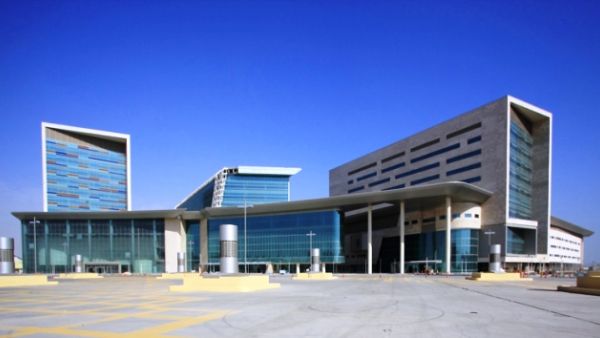Telemedicine expert at HMC receives Worldwide Recognition

An internationally renowned telemedicine expert at Hamad Medical Corporation (HMC) recently received worldwide recognition for his work in this field.
Dr Rifat Latifi, Director of Trauma Services at HMC, is the president and founder of the International Virtual e-Hospital (IVeH) Foundation – a US-based non-profit organization whose telemedicine program for the Balkans and other countries received the 21st Century Achievement Award for Health from the 23rd Annual Computerworld Honors Program.
“One of my passions is the establishment of telemedicine in developing countries and around the world as a way of improving patients’ access to doctors, reducing the cost of medical services, and improving patient satisfaction, as well as transforming medical education,” said Dr Latifi, who is behind efforts to establish telemedicine in Qatar.
The global Computerworld Honors Program pays tribute to individuals and organizations whose visionary applications of information technology (IT) promote positive social, economic and educational change. The Health Category recognizes the innovative use of IT to conduct research, develop new diagnostic or treatment methods and services, and improve the safety and quality of patient care, or improve access to, or the affordability of, healthcare.
Dr Latifi accepted the award in Washington, DC in June, successfully competing against prestigious organizations such as the Centers for Disease Control, American Society of Health System Pharmacists, Cisco, Columbia Memorial Hospital, Direct Relief International, Harvard University Center for AIDS Research, Face Forward Fund, IBM, the US Internal Revenue Service, New York-Presbyterian Hospital, and Swiss Medical Group.
Telemedicine, a rapidly developing application of clinical medicine, allows physicians to provide care to patients at a distance through live consultations over video, or capture video/still images and patient data which are stored and sent to physicians for diagnosis and follow-up treatment at a later time. It can also be used in conducting examinations or remote medical procedures.
The award-winning project called the Balkans Telemedicine Program has become an integral part of healthcare and serves as a model for telemedicine in developing countries. “Our edge is sustainability,” said Dr Latifi. “We implemented our strategy called Initiate, Build, Operate and Transfer (IBOT) in several countries starting in Kosova, which was devastated by war, and did not have an electronic library or much access to the outside world.”
“Our strategy involves building the infrastructure, developing the educational programs to ensure sustainability, and creating the human capacity to independently manage telemedicine and telehealth programs,” Dr Latifi explained. “When the program is fully operational, we turn it over to the country’s health ministry or government, and it becomes part of the country’s fabric.”
The establishment of a telemedicine program in Qatar will facilitate access to specialists for patients who live far from the main hospitals. Its application is also expected to promote more efficient delivery of continuing medical education through a telemedicine training center, as successfully achieved in Kosova.
Besides his work in the Balkans, Dr Latifi also brings experience from the University of Arizona, USA, which he said has one of the best telemedicine programs in the world – being applicable to any medical discipline, from seeing patients in pre-operative clinics, to dermatology, psychiatry, internal medicine, cardiology, high-risk pregnancies, telesurgery, trauma and emergency. “Hopefully we will be able to introduce the same technologies here that are being done worldwide by our own local experts, and by next year create a solid overall program for telemedicine in Qatar.”
Dr Latifi believes Qatar has a great potential to become one of the leading countries in telemedicine and eHealth (healthcare supported by electronic processes and communication). “Most of the hospitals in Qatar are under one system, which is the HMC system; so we can be a really good example of the application of telemedicine through an integrated, multi-disciplinary approach. Telemedicine and eHealth are of great importance as we continue to develop tremendously from all the other elements.”
Background Information
Hamad Medical Corporation
Hamad Medical Corporation (HMC) is the main provider of secondary and tertiary healthcare in Qatar and one of the leading hospital providers in the Middle East.
For more than four decades, HMC has been dedicated to delivering the safest, most effective and compassionate care to all its patients.






